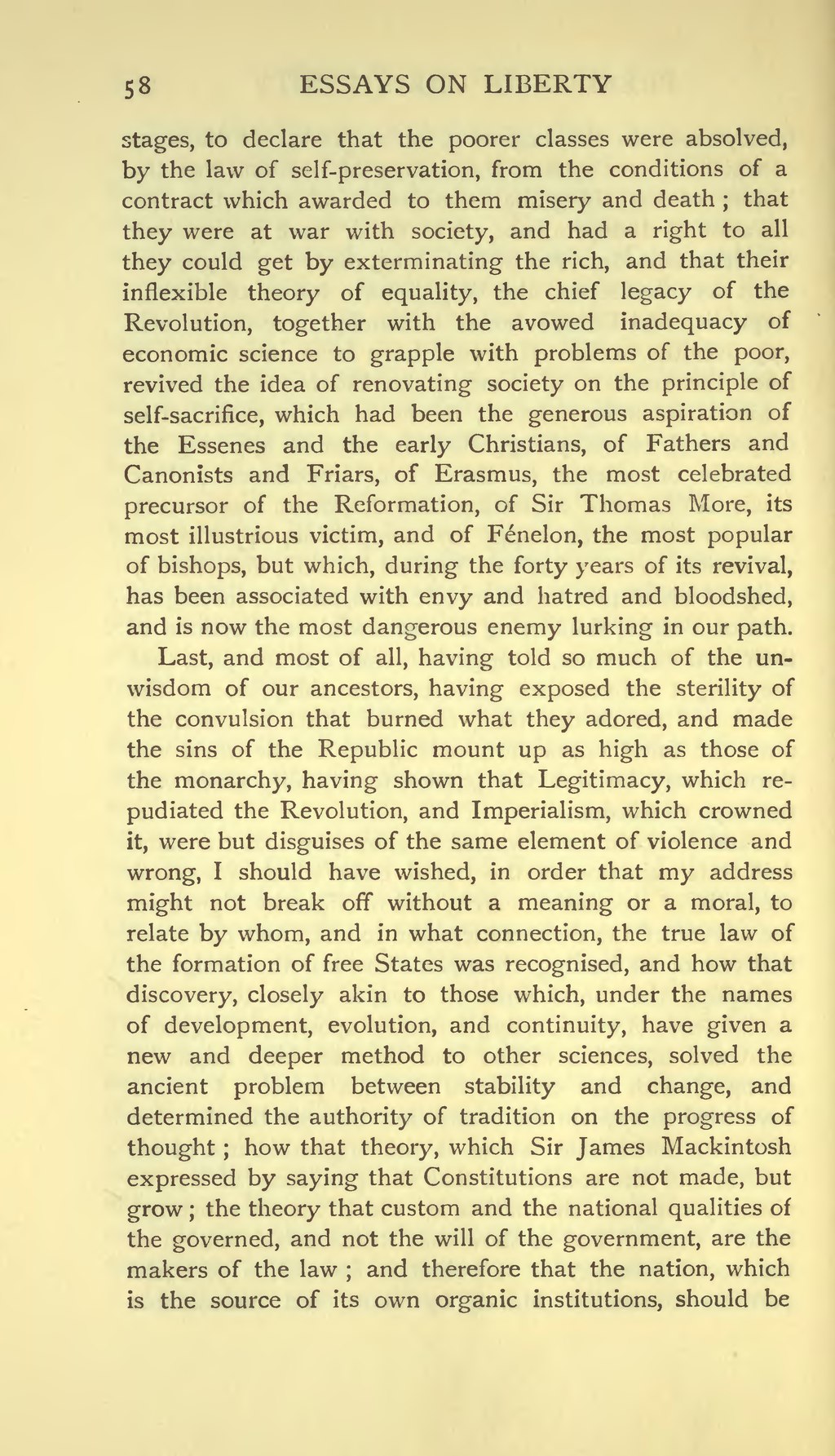stages, to declare that the poorer classes were absolved, by the law of self-preservation, from the conditions of a contract which awarded to them misery and death; that they were at war with society, and had a right to all they could get by exterminating the rich, and that their inflexible theory of equality, the chief legacy of the Revolution, together with the avowed inadequacy of economic science to grapple with problems of the poor, revived the idea of renovating society on the principle of self-sacrifice, which had been the generous aspiration of the Essenes and the early Christians, of Fathers and Canonists and Friars; of Erasmus, the most celebrated precursor of the Reformation; of Sir Thomas More, its most illustrious victim; and of Fénelon, the most popular of bishops, but which, during the forty years of its revival, has been associated with envy and hatred and bloodshed, and is now the most dangerous enemy lurking in our path.
Last, and most of all, having told so much of the unwisdom of our ancestors, having exposed the sterility of the convulsion that burned what they adored, and made the sins of the Republic mount up as high as those of the monarchy, having shown that Legitimacy, which repudiated the Revolution, and Imperialism, which crowned it, were but disguises of the same element of violence and wrong, I should have wished, in order that my address might not break off without a meaning or a moral, to relate by whom, and in what connection, the true law of the formation of free States was recognised, and how that discovery, closely akin to those which, under the names of development, evolution, and continuity, have given a new and deeper method to other sciences, solved the ancient problem between stability and change, and determined the authority of tradition on the progress of thought; how that theory, which Sir James Mackintosh expressed by saying that Constitutions are not made, but grow; the theory that custom and the national qualities of the governed, and not the will of the government, are the makers of the law; and therefore that the nation, which is the source of its own organic institutions, should be
